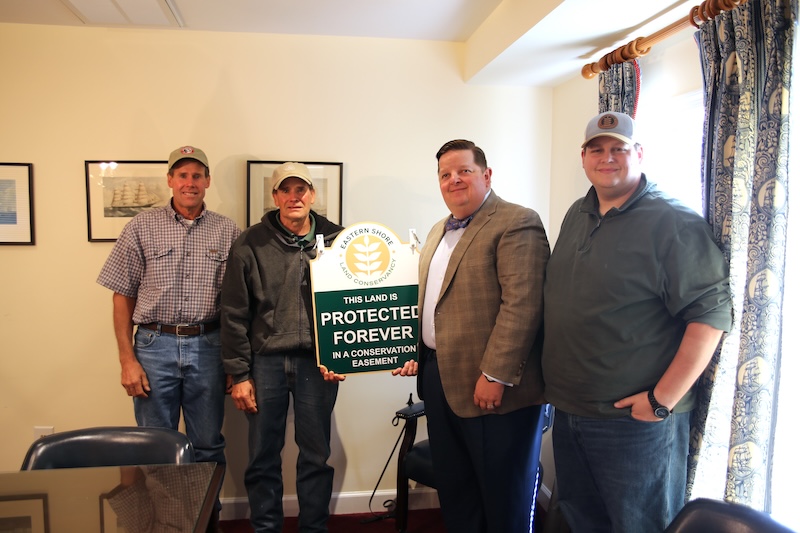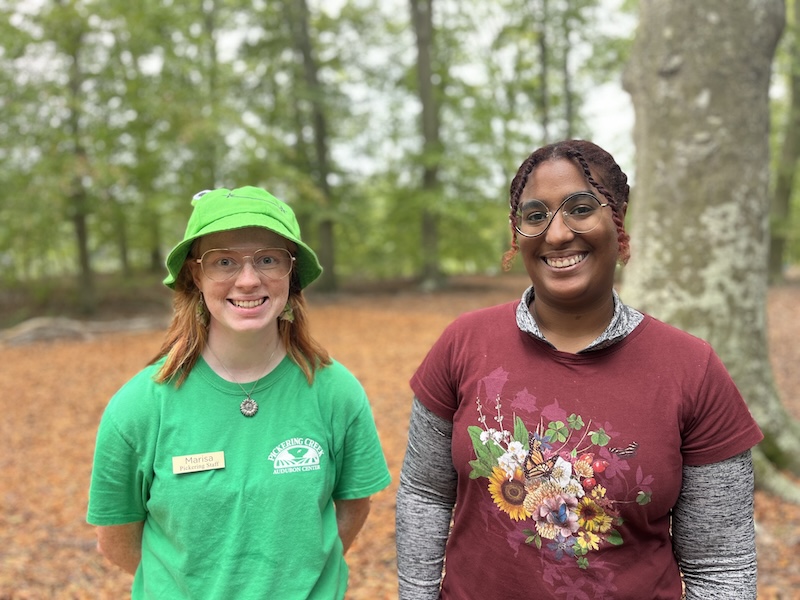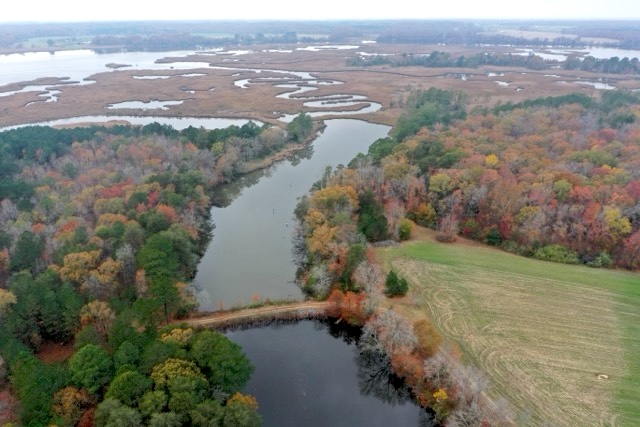There may be no better phrase than “humble beginnings” when reflecting on the inception of Eastern Shore Land Conservancy (ESLC). “Humble” comes from the Latin “humus,” meaning “earth” or “ground,” which was the exact priority and concern of the group of engaged community members who first founded ESLC in 1990. Now Maryland’s largest private land trust, ESLC’s intention from Day One has been to urgently protect the Eastern Shore’s open land and agricultural roots—the very soil, or humus, everything else on Delmarva (our wildlife, communities, culture, history, and economy) depends upon.
ESLC is celebrating its 35th anniversary of conserving, stewarding, and advocating for the unique rural landscape of the Eastern Shore of Maryland. Started by founders Rob Etgen, Dr. Russell “Russ” Brinsfield, Dr. Peter Brown, Stuart Baldwin, Ed Nielsen, Howard Wood, and Joe Doherty, and now led by President and CEO Steve Kline, the nonprofit has progressively doubled, tripled, and quadrupled its impact, helping to conserve more than 67,000 acres of land in Cecil, Kent, Queen Anne’s, Caroline, Talbot, and Dorchester Counties. This work shows no signs of stopping, with more than 7,500 acres of future conservation easements already in process.
ESLC provides access to nature and outdoor recreation; protects migratory hubs, wildlife corridors, and diverse habitats; safeguards farms, forests, and wetlands; and promotes the unique rural landscape of the Eastern Shore. This work is accomplished through public parks and preserves, advocacy, restoration, community education, partnerships, and the creation of more than 334 perpetual conservation easements, each monitored every year.
In 2024, Maryland was the first state to successfully conserve 30 percent of its land by 2030. Achieving this goal six years early was only made possible through the combined efforts of many organizations, especially established land trusts like ESLC. “I’m proud to reflect on our work as Eastern Shore Land Conservancy celebrates 35 years of steadfast conservation,” reflected ESLC President & CEO Steve Kline. “As ESLC’s recent economic report revealed, the Delmarva Peninsula’s natural resources generate a staggering $8.1 billion annually. Despite state budget cuts and increasing pressure on the landscape, ESLC continues to protect our natural resources with innovative conservation, stewardship, and engaging community education.”
ESLC appreciates the generous donors, board members, and staff whose support and tax-deductible donations have sustained our mission over the last 35 years. To support our work into the future, please visit www.eslc.org/ways-to-support to make an online donation or learn about giving through event sponsorship, securities, bequests, and more. For any questions about giving, please contact Director of Development Melissa Canoni at [email protected] or (914) 282-7313. To review ESLC’s 2025 Annual Report, please visit: www.eslc.org/wp-content/uploads/2025/09/FY25-Annual-Report-9.pdf
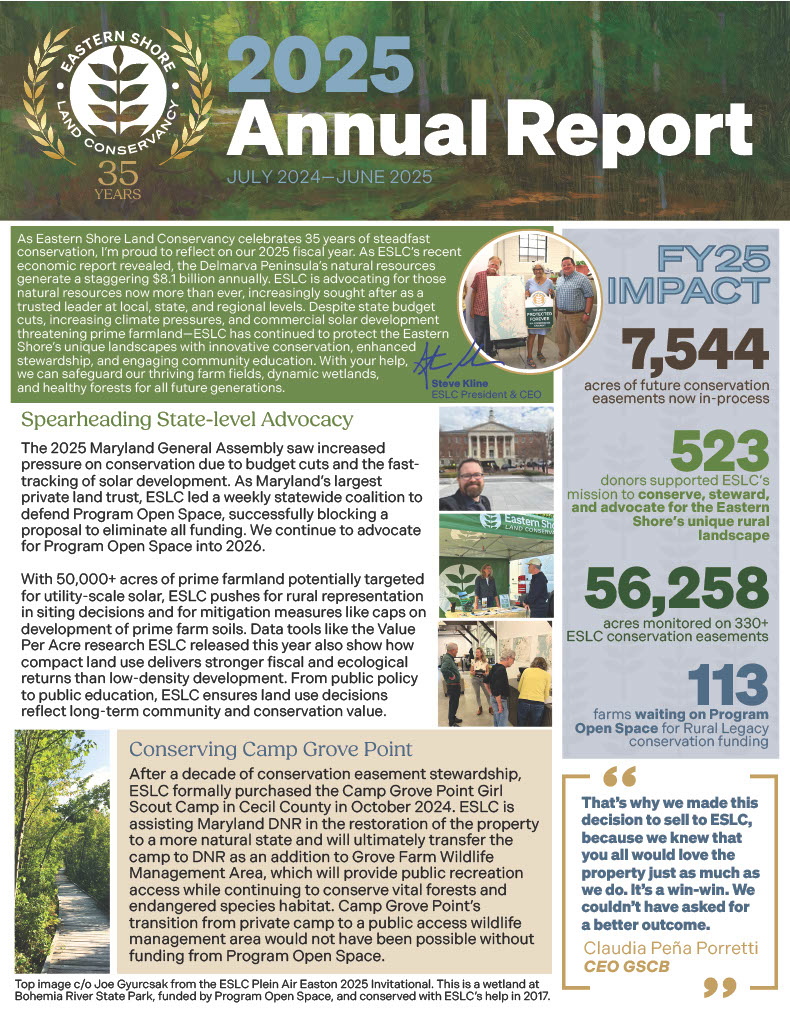
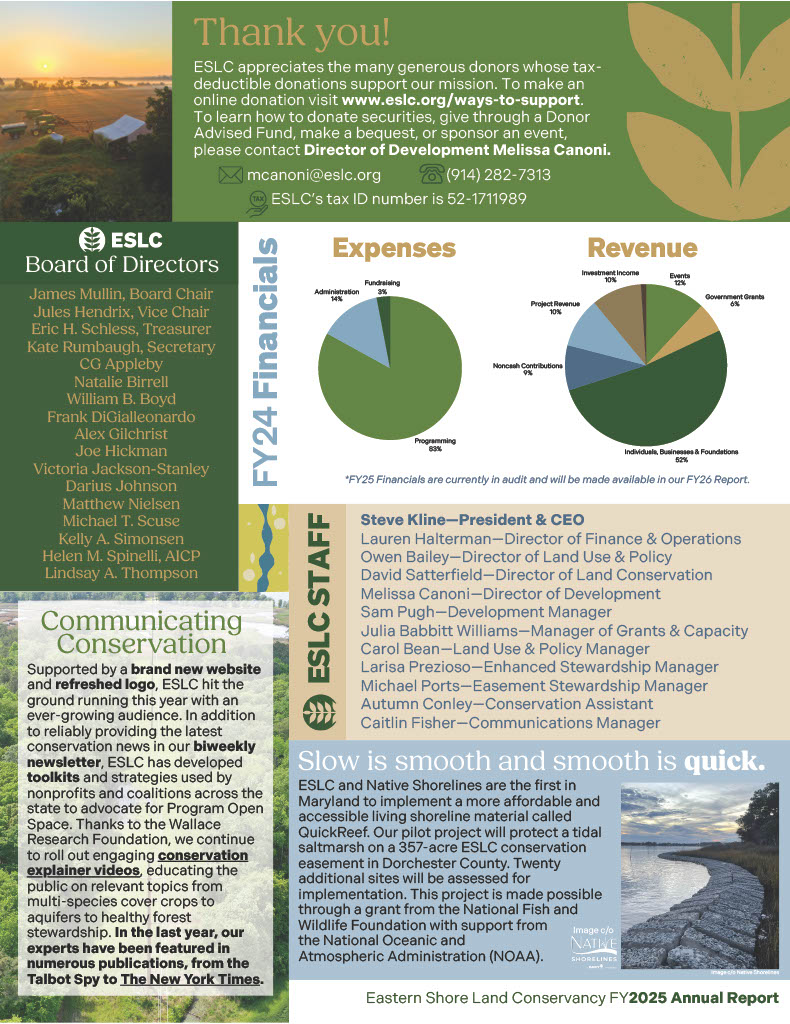
Established in 1990, Eastern Shore Land Conservancy’s mission is to conserve, steward, and advocate for the unique rural landscape of Maryland’s Eastern Shore, forever a special place of diverse and abundant natural resources and thriving rural communities.




